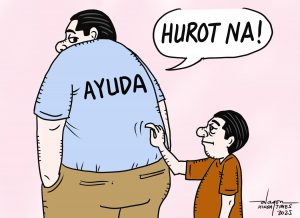
I WILL never forget an old conversation with Duncan, our British friend back in Australia when he once said, insofar as he was concerned, ‘cool’ was the most beautiful word in the English language. At the time, we had been deep in discussion that one Saturday afternoon where he was paying me a fiver for one hour each week to teach him Tagalog. As an aside to not be so overly-starched formal (I was not a real teacher nor pretended to, and the arrangement had only become possible at his insistence), we would always stretch the whole afternoon laughing and casually talking about other interesting topics, like popular idiomatic expressions for one of any language or cultures we were both familiar with. That in all had been a great time indeed, as I learned something new each session.
Until now, my take on the whole thing is without bias; the sixties and seventies may have had the best words or slang that ever came about. No need to take out your hatchets, that’s just me. All I know was that, during this specific period of the Beatles, Dylan, hippie culture and the blossoming of western rebellion against the establishment , we were throwing out words like groovy, far-out, bummer and bad trip. Include cool in that too. If one hadn’t noticed, most of these are still used today in casual conversations, at least proving their lasting pop influence.
At the beginning of each year, I used to watch out for Merriam-Webster dictionary’s pronouncement of new words that have made it into their latest edition, trivia nut that I am (another 60s slang).
Though I often wished we had something of the sort similarly done in our local dialects, this sadly may not yet be the time for it. I know of no one willing to attempt that feat yet. Yet back in the nineties, we attended a couple of workshops by the Cultural Center’s literature department, with the aim of discussing the intricacies and beauty of our diverse languages. I do not know what came of it.
As to new words and slang, what we’ve got so far is a mish-mash of everything, always with a few English and Spanish thrown in. And that varies with each region. I guess anyone who might have even attempted to come out with our own version of new words or slang, ala-Merriam-Webster would find it a really daunting task. What I know is the serious studies on our language and dialects you’ll find mostly written by non-pinoys, with copies stored in exclusive academic libraries . I even doubt if they’re for common reading. Of course, as one of the results that had come from those workshops, the herculean task of documenting and studying what we have got is subsequently nothing, if compared to our regionalist tendencies which instinctively seeks to take down each other.

